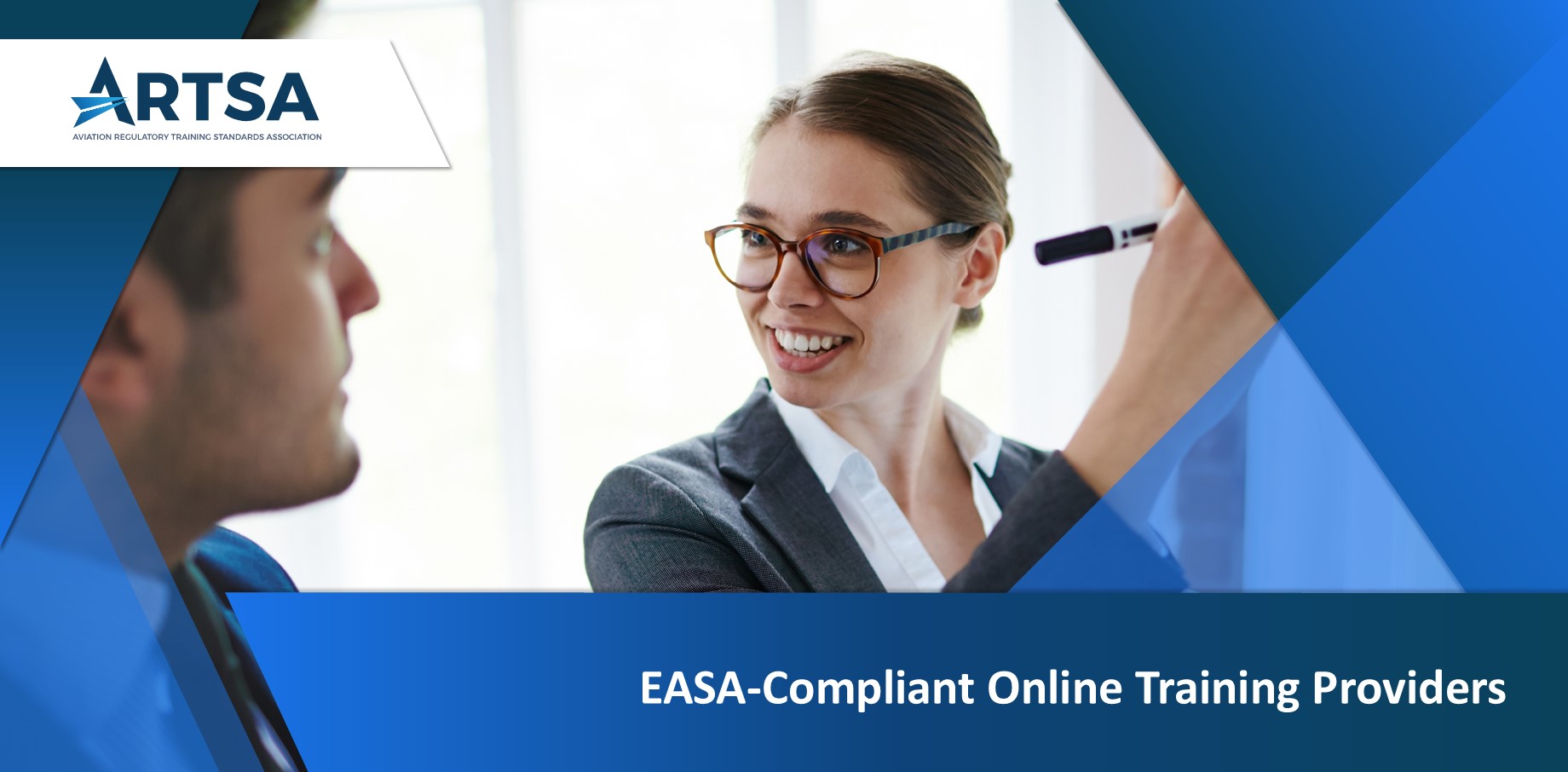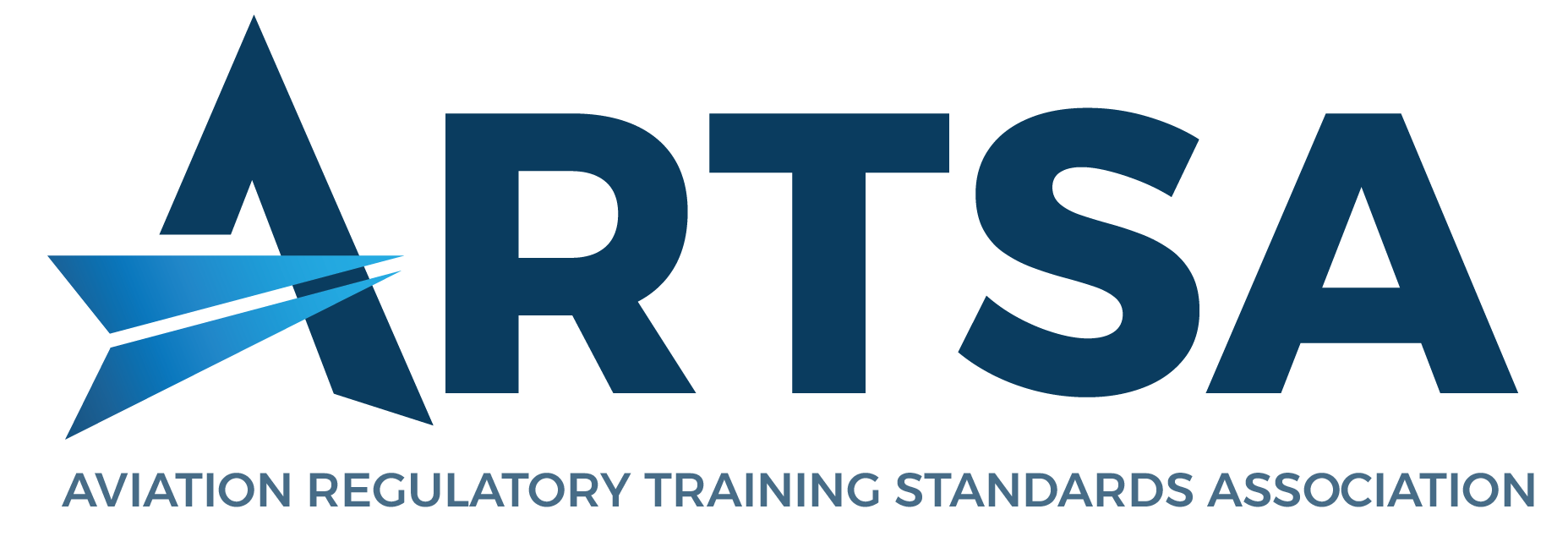
Guidance for Selecting EASA-Compliant Online Training Providers – GROK has the answers!
The European Union Aviation Safety Agency (EASA) sets stringent regulatory standards for aviation safety, requiring specialized training to ensure compliance across various sectors, including air operations, aircrew, maintenance, and ground handling.
Below is guidance on selecting EASA-compliant regulator online training providers, followed by a curated list of the top five providers based on their reputation, course offerings, compliance with EASA standards, and user feedback. The selection considers providers with robust online platforms, comprehensive course catalogs, and a focus on regulatory adherence.
- EASA Compliance and Accreditation
- Ensure the provider’s courses are explicitly aligned with EASA regulations (e.g., Regulation (EU) No 1321/2014 for maintenance, Regulation (EU) No 1178/2011 for aircrew, or Regulation (EU) No 139/2014 for aerodromes).
- Check if the provider offers certificates accepted by EASA and competent authorities (e.g., National Aviation Authorities like the LBA in Germany). Some providers allow regulatory authorities to audit course content for compliance.
- Look for providers with experience delivering training to regulators or competent authority inspectors, as this indicates high credibility.
- Course Breadth and Depth
- Choose providers offering a wide range of EASA-related topics, such as Human Factors, Safety Management Systems (SMS), Dangerous Goods (DGR), Part-145, Part-CAMO, Part-21, and aviation security.
- Ensure courses are available for different roles (e.g., pilots, maintenance technicians, ground handlers) and include initial and recurrent training options.
- Online Platform Quality:
- Prioritize providers with user-friendly, mobile-compatible learning management systems (LMS) that support self-paced learning, interactive modules, and real-time progress tracking.
- Look for features like SCORM-compliant courses, gamification, and integration with HRIS or video conferencing tools for enhanced accessibility.
- Reporting and Analytics:
- Select providers with robust reporting tools to track learner progress, completion rates, and compliance metrics, which are critical for audits by EASA or competent authorities.
- Select providers with robust reporting tools to track learner progress, completion rates, and compliance metrics, which are critical for audits by EASA or competent authorities.
- Reputation and Experience:
- Opt for providers with a proven track record, ideally with testimonials, case studies, or data on the number of certificates issued (e.g., over 120,000 certificates issued by Sofema).
- Check for partnerships with industry bodies, such as IATA, ICAO, or national aviation authorities, to ensure credibility.
- Cost and Accessibility:
- Compare pricing models (e.g., subscription-based, pay-per-course, or free trials) to ensure they fit your organization’s budget.
- Ensure courses are available in multiple languages (e.g., English and German) to accommodate diverse workforces.
Top 5 EASA-Compliant Regulator Online Training Providers
- Sofema Online (SOL)
- Overview: Sofema Aviation Services, based in Sofia, Bulgaria, is a global leader in EASA-compliant training, offering over 400 online courses through Sofema Online (www.sofemaonline.com). Since 2008, it has issued over 120,000 certificates, with no rejections by regulatory authorities.
- Key Features:
- Comprehensive catalog covering Part-145, Part-CAMO, Part-21, Human Factors, SMS, Dangerous Goods, and more.
- Courses designed by industry experts, including competent authority inspectors, ensuring regulatory alignment.
- Guest access for compliance managers to audit course content before purchase.
- Certificates universally accepted by EASA and competent authorities.
- Strengths:
- Extensive experience (over 60,000 delegates trained) and frequent regulator audits ensure compliance.
- Affordable pricing with diploma programs (e.g., CAMO Diploma) for comprehensive learning.
- Considerations:
- Organizations must verify course applicability to their specific needs, as EASA places responsibility on the receiving organization for training standards.
- Best For: Maintenance organizations, CAMO teams, and operators seeking cost-effective, regulator-endorsed training.
- Wings Academy
- Overview: Wings Academy (www.wingsacademy.de) specializes in EASA-compliant ground handling training, offering both online and in-person courses in German and English.
- Key Features:
- Courses cover health and safety, IATA DGR, Human Factors, SMS, and aviation security, aligned with EASA Regulation (EU) No 139/2014.
- Online modules include web-based exams and certificates valid for five years, downloadable immediately upon completion.
- Update guarantee ensures courses reflect the latest EASA and LBA standards.
- Strengths:
- Tailored for ground handling services, with practical, audit-ready training solutions.
- Multilingual support and flexible delivery (online or classroom).
- Considerations:
- Focuses primarily on ground handling, so it may not suit organizations needing broader EASA training (e.g., aircrew or maintenance).
- Best For: Ground handling teams and aerodrome operators requiring legally compliant certificates.
- Scandlearn
- Overview: Scandlearn (www.scandlearn.com) provides EASA Regulation online training through its Evolve platform, focusing on aircrew and air operations compliance.
- Key Features:
- EASA Regulations e-course guides learners through relevant regulations (e.g., Aircrew Regulation (EU) No 1178/2011, Air Operations Regulation (EU) No 965/2012).
- Competency-based Training & Assessment (CBTA) for Dangerous Goods and GPS Jamming/Spoofing.
- Unlimited access subscription model or pay-as-you-go pricing.
- Strengths:
- Modern, engaging LMS with a focus on practical knowledge transfer.
- Suitable for global operators, with content adaptable to non-EASA standards (e.g., ICAO).
- Considerations:
- Narrower focus on aircrew and operations may limit applicability for maintenance or ground handling.
- Best For: Airlines and air operators seeking aircrew-focused regulatory training.
- CAA International (CAAi)
- Overview: CAA International, the training arm of the UK Civil Aviation Authority, delivers EASA- and ICAO-compliant training, leveraging UK CAA and EASA standards.
- Key Features:
- Courses cover aviation security, SMS, cybersecurity regulations, and ICAO USAP audit preparation.
- Online and tailored in-company training options, quality-assured by practicing UK CAA regulators.
- Partnerships with EASA and Saudi GACA enhance credibility.
- Strengths:
- Direct regulatory expertise from UK CAA ensures high compliance standards.
- Focus on practical application through group exercises and case studies.
- Considerations:
- Pricing may be higher due to premium regulatory expertise, and public course availability is limited.
- Best For: National aviation authorities and large operators needing specialized security and oversight training.
- Paradiso LMS
- Overview: Paradiso LMS (www.paradisosolutions.com) is a versatile learning management system offering compliance training, including EASA-related courses, with a focus on customization and accessibility.
- Key Features:
- Mobile-compatible platform with gamification, e-learning modules, and comprehensive reporting.
- Integrates with HRIS, Zoom, and other tools for seamless training management.
- Customizable to meet specific EASA regulatory requirements (e.g., Part-145, Dangerous Goods).
- Strengths:
- Intuitive interface and extensive analytics for audit readiness.
- Scalable for organizations of all sizes, with free trial options.
- Considerations:
- Less aviation-specific than Sofema or Wings Academy, requiring more customization for EASA compliance.
- Best For: Organizations seeking a flexible LMS for diverse compliance needs, including EASA regulations.
Additional Notes
- Verification: Always confirm with your competent authority that the provider’s certificates meet your organization’s specific EASA requirements, as EASA delegates training oversight to the receiving organization.
- Free Trials: Providers like Paradiso and Wings Academy offer free trials, allowing you to assess course quality before committing.
- Regulatory Updates: Choose providers that regularly update content to reflect EASA’s evolving regulations (e.g., Sofema’s verification process for each course).
Conclusion
The top five providers—Sofema Online, Wings Academy, Scandlearn, CAA International, and Paradiso LMS—offer robust EASA-compliant online training tailored to different aviation sectors. Sofema Online stands out for its extensive catalog and regulatory acceptance, while Wings Academy excels in ground handling. Scandlearn and CAAi cater to air operations and security, respectively, and Paradiso offers a customizable LMS for broader compliance needs. Evaluate your organization’s specific requirements, budget, and regulatory obligations to select the best provider, and leverage free trials or guest access to ensure course suitability.
Source: grok.com
